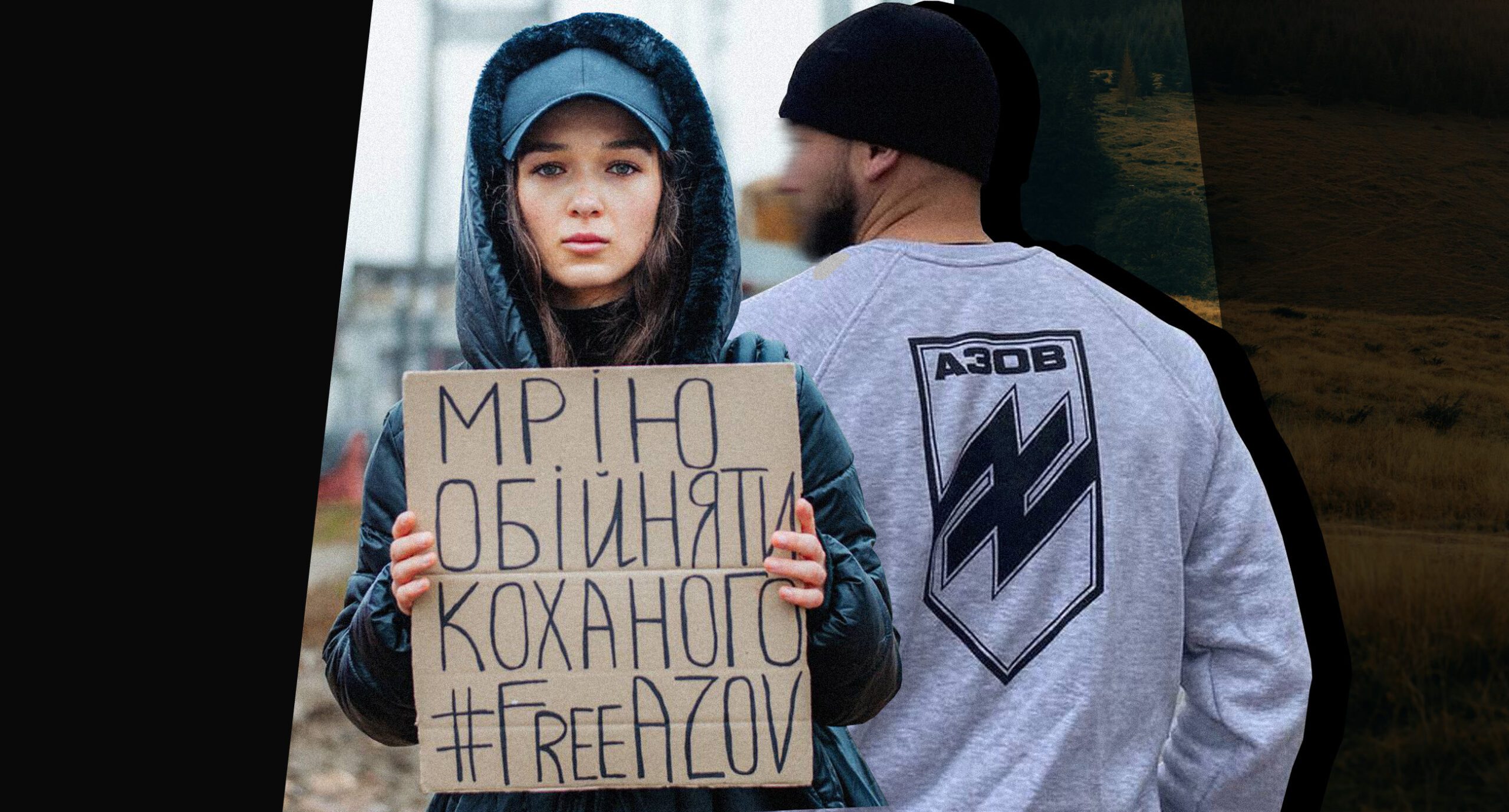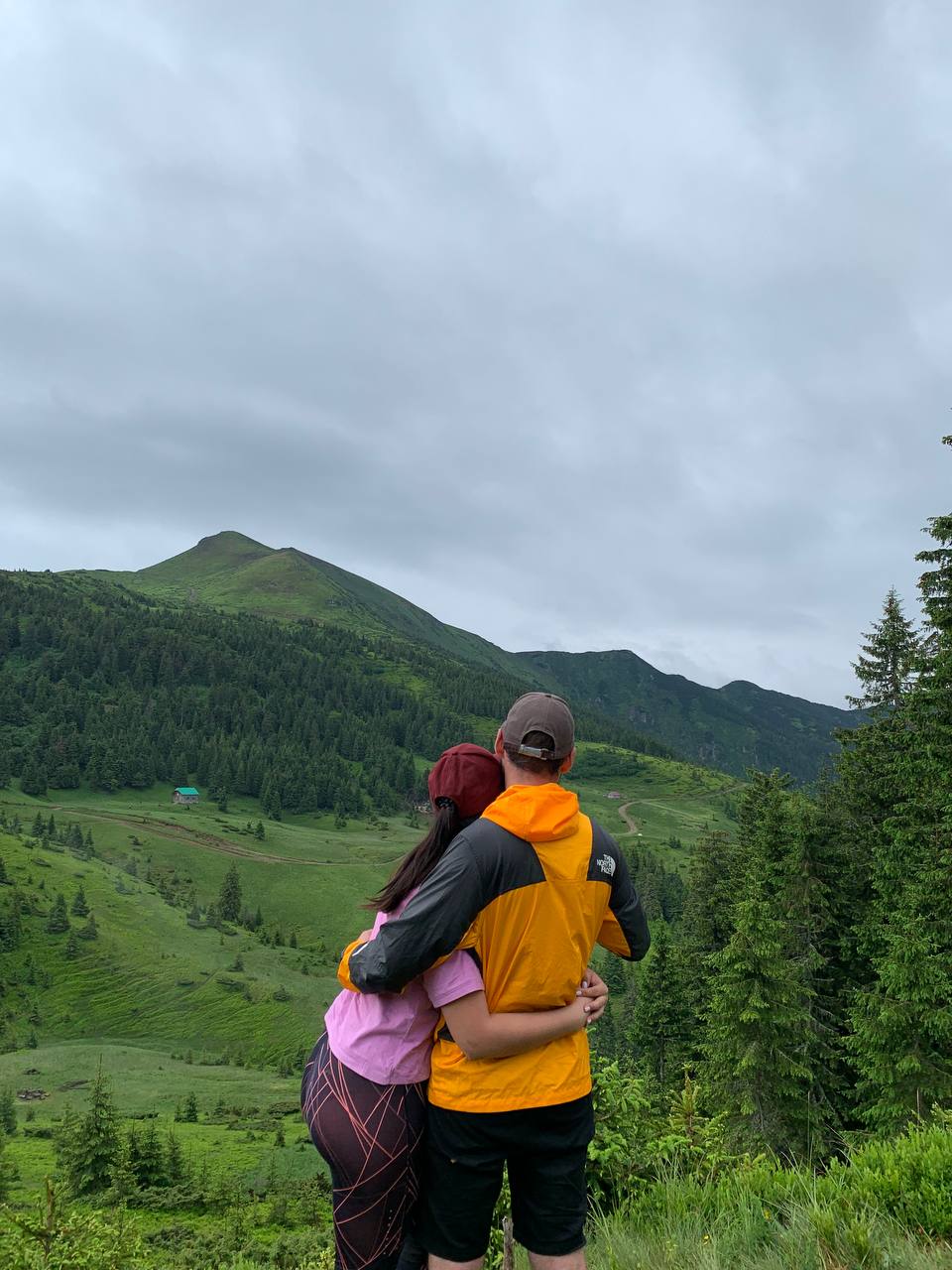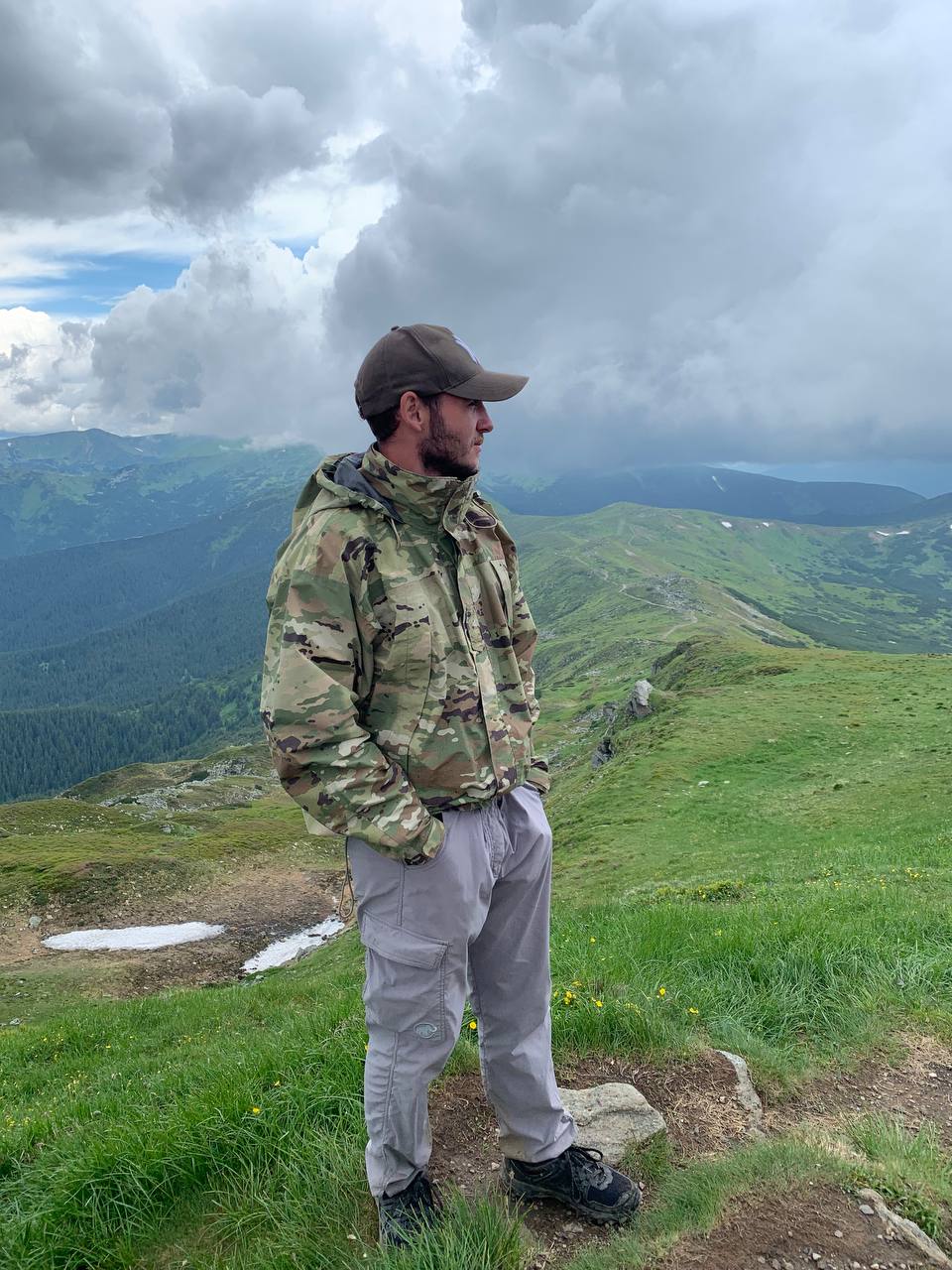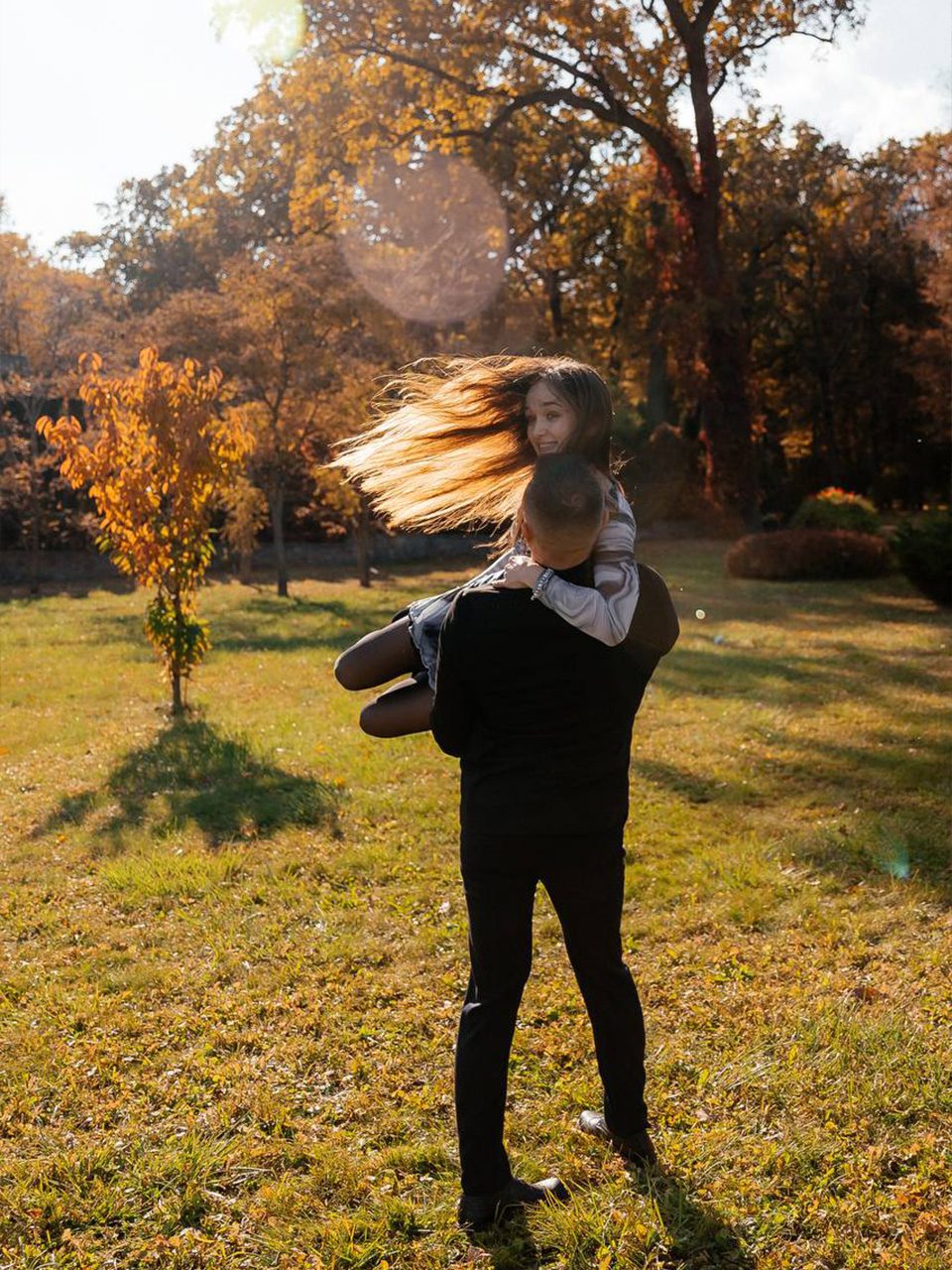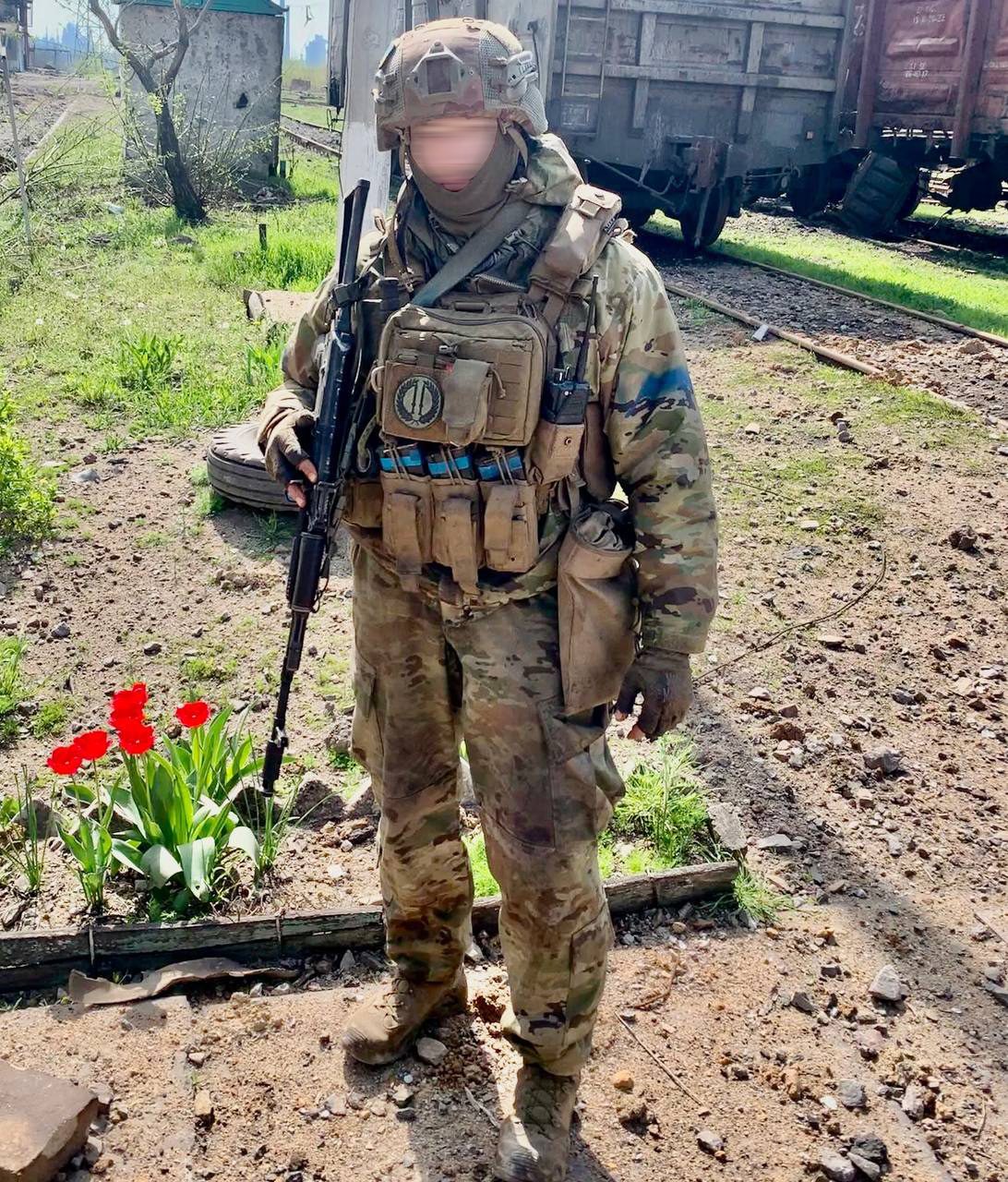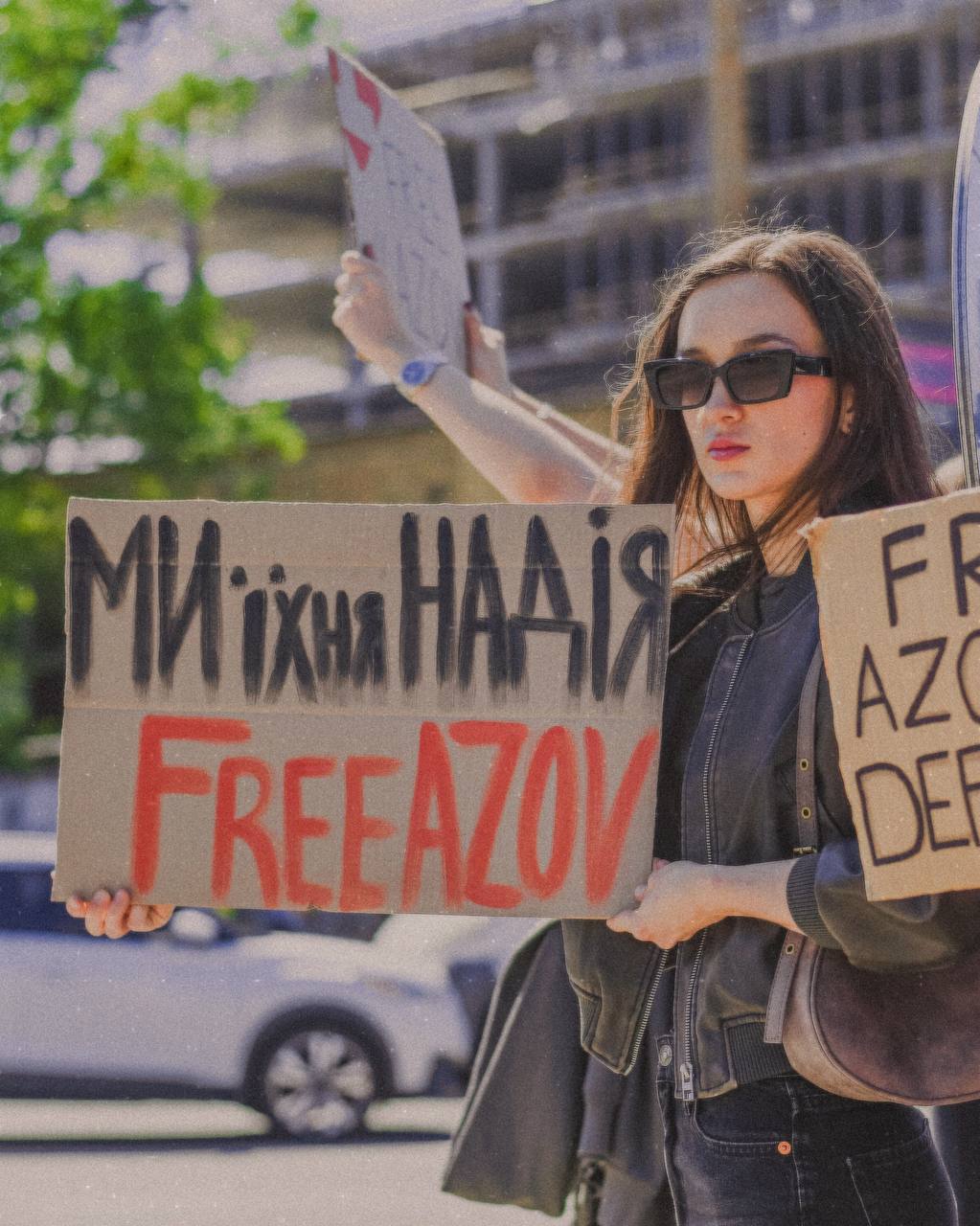For two years now, hundreds of Azov soldiers have not set foot in their homeland, have not seen their parents, loved ones, or friends. Two years of unbearable Russian captivity, abuse and torture, and most importantly, uncertainty. Every day, their relatives, comrades-in-arms, and those who care try to draw public attention and remind the world that captivity kills. Every day, they fight for the liberation of the men and women who went to defend Ukraine and every Ukrainian from the enemy’s invasion without hesitation.
Zaborona’s editor Svitlana Hudkova spoke with Ilona and Lilia, who are waiting for their loved ones, about their lives, dreams, plans, and the importance of remembering about the prisoners.
The second family
In 2017, Azov became a second family for 18-year-old Dmytro, Ilona says. He met like-minded people there and was very proud to be among his comrades.
Ilona and Dmytro met the same year, and Ilona enjoyed spending time with her boyfriend’s friends. “We went out together, some of those people became really close friends of ours. They were all very open, sincere, and kind. Those guys were into sports and a healthy lifestyle, they loved traveling. They even looked a little bit alike,” she recalls.
Dmytro was active too: he was always moving, went for a run every day and kept fit. He liked to spend his vacations outdoors, especially hiking in the mountains. Ilona remembers one of their hikes in particular. “I don’t really like long hikes. We had been walking for three days, carrying 20-kilo backpacks. It was raining, and we stopped for the night. There was not much food left, and I really wanted a Snickers bar! I don’t know where he was hiding it, but he got it for me. It was so romantic,” the girl smiles.
“I am where I’m supposed to be.” Mariupol
On the eve of the full-scale war, Dmytro was taking an officer’s course in the Lviv region, where the couple was able to meet briefly on February 20. And on February 24, Ilona left Kyiv for western Ukraine again on her boyfriend’s instructions.
“The day passed in short calls with him. He kept telling me that everything would be fine, and that he didn’t have time to talk. The next day, I called Dmytro and asked where he was. He replied: ‘I am where I am supposed to be.’ I realized he was in Mariupol,” Ilona says.
After that, there were only short texts in which Dmytro let her know that he was alive. Ilona lived from message to message — the Azov soldier could not write often, because there was no connection. Until one day he called. “He had to go to Azovstal because they still had a connection there. He said that the road was being shelled, and he might not have made it. But he was going to call me because he remembered that that day, April 14, was my birthday. When we could talk on the phone, he told me about the horrors in Mariupol, and I couldn’t even fully grasp how terrible it was. When I saw the footage from there, it was horrifying. One day he got in touch, and I asked him what he had eaten these days. He replied: ‘I had some chocolate-covered peanuts, and I shared them with my comrades. That’s all I ate.’ I still cannot believe that this hell isn’t over for them.”
After leaving Azovstal, Dmytro messaged Ilona several times. The first message came when they were taken to a Russian prison. The second time was after the terrorist attack in Olenivka: “Alive and well. Love you.” Since then, there has been no contact with him.
In March 2023, Dmytro, along with some other Azovstal defenders, was sentenced to 20 or 22 years in prison, according to different sources. At the same time, Ilona heard the last news about her beloved from his comrades, who were released from captivity.
“When I told them who I was and who I was looking for, they answered: ‘Oh, is this Tiger? Yes, we saw him.’ That’s what they called him. They said he was doing well, holding up. Some guys were with him in Olenivka. They also told me that he got himself a piece of paper where he wrote a list of things he had to buy to go to the mountains after his release from captivity,” the girl said sadly.

Ilona and Dmytro. Photo from Ilona’s personal archive 
Dmytro. Photo from Ilona’s personal archive
He could not stand aside when the war broke out
Bohdan joined Azov in 2015 when he turned 21. He could not stand aside when Russian troops annexed Crimea and started the war in Donbas. “His mom was very worried. He didn’t even tell her right away —she found it out as a fact. But despite worries, his family supported him because it was the decision of a man and a conscious citizen,” says Lilia.
They met online and texted for some time until Bohdan came to the capital. That’s when their communication turned into a relationship.
“We couldn’t stay together for long. Only when he was on vacation or traveling by Kyiv on business could he stop by for a few days. I visited him once in Mariupol. We went to the seaside, walked near the drama theater, and he showed me around the city. It surprised quite a bit. I expected to see some gray industrial place almost on the front line. But along with all large-scale production, the city was very green and modern. Everything was developing there, despite the war being so close by,” Lilia shares her memories.
Bohdan did not tell her much about his service. According to the girl, together with his comrades, they were constantly improving their skills and took their training very seriously. The guys had no illusions about Russia. They knew that sooner or later they would have to fight it very seriously. Before the start of the full-scale war, the Azov soldier kept telling his beloved that everything would be fine, and they were ready if something happened.
“It was our last conversation before the full-scale war, when he returned to Mariupol from Kyiv. I asked him, and he told me: ‘Everything will be okay. If it wasn’t, I wouldn’t be here now.’ I think he wanted to reassure me. Or maybe he didn’t believe that everything would happen as it did, that they would be under such a terrible siege,” the girl says.

Lilia and Bohdan. Photo from Ilona’s personal archive 
Bohdan. Photo from Ilona’s personal archive
Dreams of lying on the green grass
On the first day of the great war, Lilia refused to leave Kyiv, despite Bohdan’s requests. He continued to reassure her, saying that everything was under control. And kept silent about the true state of affairs.
“He kept saying that everything was fine, even though they were hungry. Before the so-called evacuation from Azovstal, they ate only once a day. In the first days he would call me, but then his calls became more infrequent. He messaged a couple of times, and once his fellow soldier texted me to say that Bohdan was fine. They didn’t want to tell the truth to their loved ones, because we couldn’t help. But we saw that nothing was ok. We believed, hoped for a de-blocking, then for extradition to other countries, then we heard about the captivity… At first, there was complete rejection, because everyone knew what captivity was like. Especially with Russia’s attitude to Azov. The guys themselves did not consider this option either. It looked like everything was lost. I realize now that there was no other option, but unfortunately, they are still in captivity,” says Lilia.
The last time she saw her beloved was via video call in May 2022, shortly before he left Azovstal.
“He said again that everything would be fine. But he was so exhausted, and to be honest, he didn’t say much. I wanted to support him but couldn’t find the right words. I was shocked myself, trying not to cry, although I was hysterical when I learned about the capture. Later, I gathered my strength, because it wasn’t easier for him there. He told me he was dreaming of lying on the green grass,” the girl recalls.
A few months later, in July, there was a terrorist attack in Olenivka. Lilia says she received unconfirmed information that Bohdan was not in those barracks. But this was confirmed by his comrades-in-arms only in September 2022, when the first exchange of Azovstal defenders took place. The girl heard about her beloved’s fate for the second time in May 2023, also from the exchanged prisoners. “I talked to the guys who shared a cell with him, so he was alive. There was some kind of momentary happiness, it calmed me down, although not for long. But little news about a loved one is already a lot. Others can see their relatives in videos or photos from courts or interrogations. They are exhausted, thin, depressed, but at least you can see them. As far as I know from open sources, Bohdan is not a convict. I have not seen him and cannot even imagine what he looks like now. I want to see him, and I’m afraid to see him all at once,” the girl says.

Lilia at the rally. Photo from Lilia’s personal archive
Rallies in support: silence kills
Now Lilia, along with other relatives and friends of the prisoners of war, is taking part in rallies supported by the Association of Families of Azovstal Defenders to remind society of the men and women who stood up for every Ukrainian at the cost of their freedom. To remind us of people who lived their lives, had dreams and hobbies, loved and planned for the future.
“Coming out for an hour and a half once a week is a great support for the families and a show of respect for the military, who will get out of there and see that Ukrainians cared. Many soldiers on leave or currently undergoing rehabilitation attend these events. I think it’s a shame for civilians to stay home while the military go out to fight for their people at the front and in the rear. We just want to remind everyone that captivity kills, silence kills. We need to remember our heroes. We are in pain, and we need support,” emphasizes the girlfriend of the captured Azov soldier.

